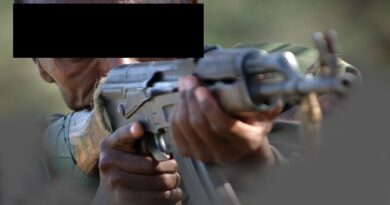Gweru Car Dealer Peter Dube Sentenced To Two Life Terms Plus 20 Years
Gweru car dealer Peter Dube, who was recently convicted on two counts of murder and two counts of attempted murder by the Bulawayo High Court, has been sentenced to two life imprisonment terms plus an additional 20 years.
Dube received a life sentence for each of the two murder counts, while the attempted murder charges attracted a combined 20 years’ imprisonment — 10 years for each count.
His conviction followed a four-year international manhunt that spanned several countries before he was finally brought to justice. Justice Munamato Mutevedzi presided over the case at the Bulawayo High Court.
The court found that on the night of 22 April 2021, Dube unleashed “unmitigated violence,” killing Shelton Chiduku and Gamuchirai Madungwe, and shooting Nyasha Nharingo and Nyaradzo Nharingo, leaving both women seriously injured.
Nyaradzo later died from complications related to her injuries, a point the judge highlighted with concern.
The violence was reportedly sparked by Dube accusing his friend Chiduku, a gold dealer based in Kwekwe, of having an affair with his girlfriend, Nyasha. Said Justice Mutevedzi:
“The medieval ruthlessness with which the violence manifested was said to have shaken the usually sleepy town of Gweru.”
The judge dismissed Dube’s claim that he had been suffering from mental illness at the time of the shootings, describing his defence as “malingering, calculated, and unsupported by evidence.”
Following the shootings, Dube, who ran a popular car dealership in Gweru, fled Zimbabwe. The court’s judgment reveals for the first time the full details of his escape.
Justice Mutevedzi revealed that Dube fled Gweru on the same night with the help of his senior wife, Nomatter Chawana.
He crossed into South Africa, travelled through Eswatini, and assumed a false Mozambican identity before flying to Ireland, where he lived undetected for several years.
The court noted that Dube admitted to using a pseudonym to settle in Ireland. His cover was eventually exposed, leading to deportation first to Mozambique, where he was disowned, and then back to Zimbabwe.
The judgment also outlined the events leading up to the attack. On the day of the murders, Nyasha Nharingo and her sister Nyaradzo had travelled to Masvingo with their friends, Shelton Chiduku and Gamuchirai Madungwe, to collect a passport. When they returned, they found Dube had locked himself inside their apartment.
Police briefly intervened but left, and the situation quickly escalated. Dube went downstairs, armed himself with a gun, and confronted Shelton and Gamuchirai in the car park.
At point-blank range, he shot Shelton, killing him instantly. Gamuchirai attempted to flee but was shot and killed on the spot.
Consumed by what the judge called an “implacable rage,” Dube then stormed upstairs. Justice Mutevedzi added:
“From very close range, he shot Nyasha… The bullet entered her cheek and exited the other side of her neck.
“He then took aim at Nyaradzo… The bullet found its mark just above her right eye… Her eye was ruptured.
“Satisfied with his grisly handiwork, the accused nonchalantly walked out and left the scene, which resembled a graveyard.”
Dube claimed he suffered from temporal lobe epilepsy and said he had no recollection of the shootings, arguing that he was mentally incapacitated at the time.
However, Justice Mutevedzi found the testimony of State psychiatrist Dr Nemache Mawere compelling.
The expert described Dube as evasive, inconsistent, and deliberately theatrical during examinations, indicating that he was exaggerating his condition.
The court noted that Dube had orchestrated a sophisticated escape across several countries, maintained relationships with both wives, managed his businesses, and navigated foreign immigration systems—behaviours inconsistent with severe mental illness.
Ultimately, Justice Mutevedzi concluded that the defence failed to prove, on a balance of probabilities, that Dube was mentally disordered at the time, the legal threshold required for a special verdict of insanity.
The judge also expressed concern over the later death of Nyaradzo Nharingo, who never recovered from her gunshot injuries. Despite this, prosecutors did not charge Dube with her murder. He said:
“Why then that death was not added to the list of murders can only be explained by the prosecution.”
The involvement of Dube’s senior wife also troubled the judge, as she had assisted him in fleeing the country but was never questioned.
With the insanity defence rejected and Dube admitting to shooting the victims while claiming memory loss, the court found him guilty on all four charges: two counts of murder and two counts of attempted murder.
Justice Mutevedzi noted that the killings were deliberate, targeted, and carried out with chilling calmness.



